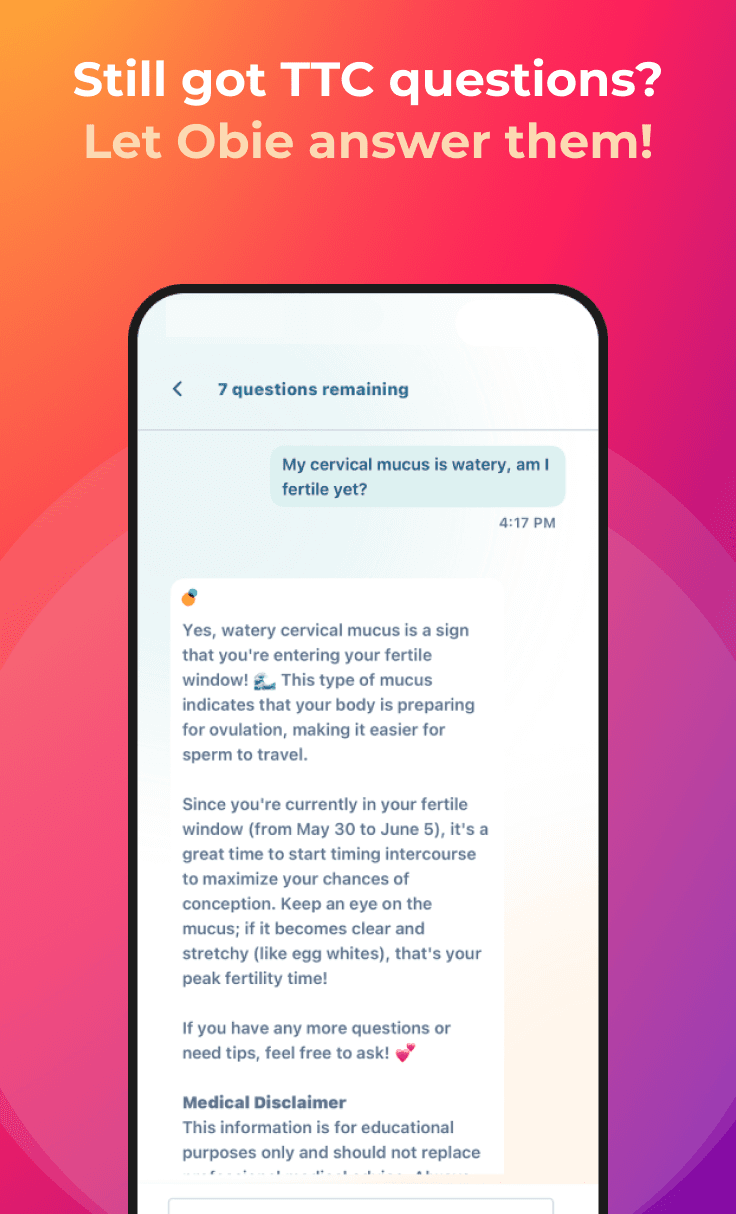Fertility Specialist Calculator
Other Tools
Obie Editorial Team
.jpg&w=3840&q=75&dpl=dpl_5Mqa8gJ823DSENE19W1K5gtQqoRx)
When should you seek expert advice on infertility?
Do you have any signs of infertility? Our quick reference tool will tell you if you or partner have any factors that warrant seeing a fertility specialist. Seeking help early on is key to diagnosing and treating infertility.
One of the most frequent questions we get from couples who are trying to conceive is: “When should I see my doctor”? and “When you should I get an appointment with an infertility specialist”?
The simplest answer is to go and see your general Ob-Gyn doctor as soon as you think about trying to get pregnant. That is when you should make the initial preconception visit to find out what you can do to improve your chances of having a healthy pregnancy.
What are your chances of getting pregnant?
Planning to get pregnant is not as easy as most people imagine, and your chances of getting pregnant depend on many different factors. On average, a couple having regular unprotected intercourse has only a 20-25% chance each month to get pregnant. On average it takes 50% of couples more than 6 months to conceive.
Younger women and those with fewer health problems have a higher chance of getting pregnant than older women and those with issues. Fertility decreases as you get older, specifically starting at 35 years old.
Defining infertility
The traditional definition of infertility is usually made after unsuccessfully trying to conceive for more than one year. That doesn’t mean you can never get pregnant. Many couples who have been trying to get pregnant will successfully get pregnant after one year.
But that doesn’t necessarily mean everyone should wait that long before seeing a specialist.
When time is of the essence it’s important to not lose any of that precious time, and there are certain instances where a couple should see an infertility specialist (reproductive endocrinologist) before waiting 12 months.
The American Society for Reproductive Medicine (ASRM) has defined infertility as..." the inability to conceive after one year of unprotected intercourse". They suggest that …. “couples in whom the female partner is under the age of 35, and who have not conceived after one year of unprotected intercourse, should seek the help of a physician that specializes in the treatment of infertility”.
When should couples see an infertility specialist?
But ASRM also lists conditions where couples should see an infertility specialist earlier:
A. Couples, in which the female partner is over the age of 35, should seek help after six months of being unable to conceive.
B. Couples who have known causes of infertility should seek help from a specialist even sooner. These include couples with:
- endometriosis,
- fibroids,
- irregular periods,
- prior abortion,
- DES mothers,
- varicoceles,
- prior cancer treatment or about to receive chemotherapy, etc.
What type of doctor should I see?
Which doctor you initially see is your choice, and may well be dictated by your insurance plan. Many general Ob-Gyns are fully capable of initially caring for infertile couples, but seeking a second medical opinion from a specialist is a way to be confident in making decisions about medical care. And you might get things done faster, without losing precious time.
A couple or individual who is concerned about protecting their fertility is encouraged to seek an evaluation by a doctor who specializes in Reproductive Endocrinology or Reproductive Medicine (RE—Reproductive Endocrinologist) as soon as possible in order to improve their chances getting pregnant without the unnecessary loss of time.
Read More










